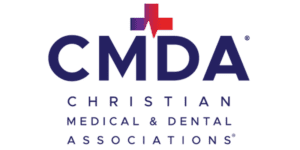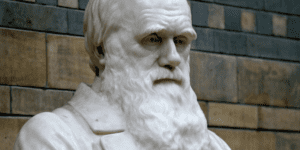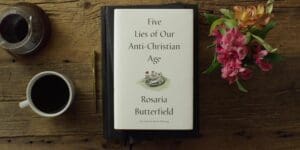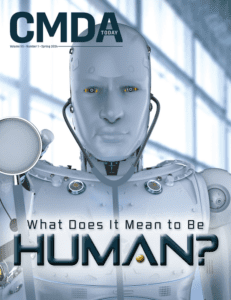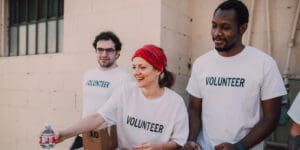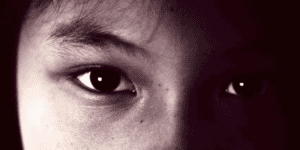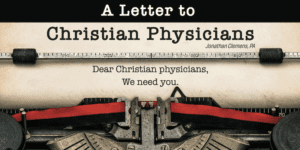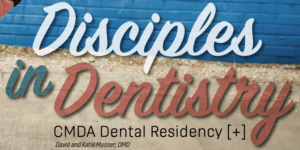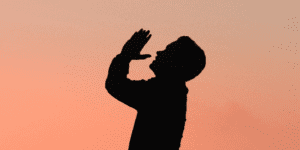ARTICLE
My Heart Attack and the Running Father
As a physician, I have taken the journey of life with many patients and have listened carefully. Bubbling under the surface of everyone’s life resides doubt, anxiety, and fear - like some primal three-headed beast. Even in lives that seem under control and doing well, it’s there – trust me.
Four days ago, I suffered a heart attack. The widow-maker artery closed itself down to 10% of its normal flow and evidently had designs on going all the way. Good grief. Five days ago, I hiked over eight miles. Go figure.
As a physician, I have taken the journey of life with many patients and have listened carefully. Bubbling under the surface of everyone’s life resides doubt, anxiety, and fear - like some primal three-headed beast. Even in lives that seem under control and doing well, it’s there – trust me. I’ve taken care of the rich and the famous - people who have it all together.
They doubt the significance of their lives. They are anxious about the security of their jobs and the stability of their marriages. They are fearful that they are not smart, funny enough, or attractive enough.
A heart attack has a way of bringing fear, anxiety, and doubt right to the surface. Doubt - that I will be adequate. Fear - that things won't go the way I want them to go. Anxiety - that God is not for me.
“Did God really say, ‘You must not eat from any tree in the garden’?” Even in the perfect paradise of Eden, Eve began to doubt.
“’You will not certainly die,’ the serpent said to the woman. ‘For God knows that when you eat from it your eyes will be opened, and you will be like God, knowing good and evil.’” Despite living in a place where all was well, Eve feared she was not adequate, doubted God’s goodness, and was anxious. The three-headed beast sprung up ready to propel her into a disastrous coping strategy.
I have a granddaughter who is two years old. When Elly recently scrapped her knee and started crying, what did she want? A physician to explain the facts of wound-healing? No, she wanted her mother – not facts – not information. Elly wanted hugs, kisses, and a Band-Aid – she wanted love.
When we have doubts, anxieties, and fears, I believe we are actually doubting our connection with God and others. We fear we are not healthy enough – emotionally, socially, and spiritually. And down deep, we all know (even non-believers) that to be healthy as a human being is first and foremost about being connected relationally to God and others.
However, when I had my heart attack, my initial and instinctive tendency was to ameliorate my doubts, anxieties, and fears by acquiring information – facts – details – numbers. And, as a CEO and physician, there certainly is some wisdom in such a strategy.
But, now that I have had a few days to ponder this, I have come to understand that doubt, anxiety, and fear, although concerned somewhat with facts and reason, are primarily about our sense of connection, security, and confidence in our relationship with God and loved ones. Elly, I believe, knew this instinctively because she knew she was loved. Eve did not – she believed the Great Liar.
When I began to see and evaluate my heart attack from God’s point of view, a unique peace was felt. It was not the result of a favorable risk analysis. It was not about thinking or logic but of a communion with God; perhaps the ancient mystics were most precise when they called this “a burning participation in the divine life”.
So, rather than reading more about diet or exercise or stents (there is always more one can know), I have decided to focus my recovery time on my connection with my God and my loved ones. In other words, healing and peace were not going to be found in acquiring more and more information. When I have doubts, fears, anxieties, or scrap my metaphorical knees (which is daily), I need to run to my heavenly father and to those that love me.
But there is one last twist to the story for someone else actually did the running when I was in the emergency room. While I was focusing on my EKG, blood pressure, and troponin levels, an ancient story was being repeated once again in my life. It’s known in the Middle Eastern church as “The Story of the Running Father.” You probably know it as “The Prodigal Son” (Luke 15:11-32).
In this story, the son demands his share of the family’s wealth, leaves home, and promptly squanders every last penny. This was a serious matter and few sons would ever return back to their village or home as they would be cut off – shunned – considered dead - by culture and tradition.
However, the young man determines to return to his father’s house with the hope of working as a servant. Unknown to him, the father had been eagerly hoping and waiting for his son’s return. So when the father saw his son in the distance – he ran. Now, it was considered extremely undignified for a Middle Eastern man to run. But, the father ran. He ran ahead of the village, he ran ahead of reason, he ran ahead of tradition, he ran ahead of cultural norms, he ran despite the shame.
When he reached his boy, the father gathered his son into his arms, kissed him and called for a banquet in his honor.
This, Jesus tells us, is what God is like.
My father, thank you for running towards me - despite my fears, anxieties, and doubts. Thank you for showing your healing mercy to me. Because you are sovereign, let each new day have less doubt, less anxiety, and less fear than the day before. Help me to trust your great love. Amen.
James A. Avery, MD, FACP, FCCP, FAAHPM is the Chief Executive Officer of Hospice of the Piedmont in Charlottesville, Virginia
Related Topical Articles:
Other Related Topical Content:
Related Publications:
Sorry, we couldn't find any related resources/books on this topic. Please check back often as new topical resources emerge.

